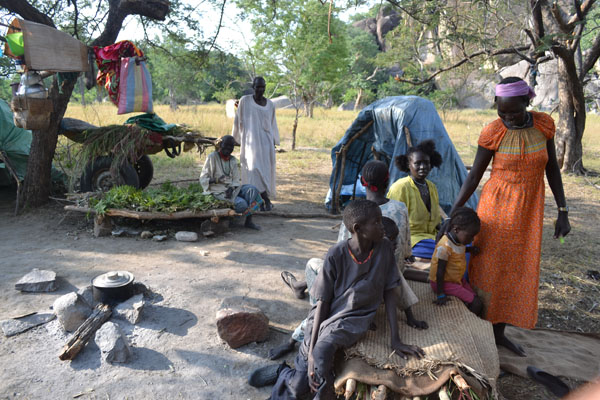
No informed international observer expected the post-separation negotiations between Sudan and the newly formed Republic of South Sudan to be concluded easily. But now, as the first anniversary of the South’s independence rapidly approaches, it is becoming all too clear just how little has been accomplished on issues related to border demarcation, citizenship, oil revenues, and the final status of Abyei. Moreover, the ongoing violence in South Kordofan and Blue Nile threatens to further destabilize the fragile relationship between the two countries.
In a new field dispatch, Enough Project Policy Analyst Jenn Christian examines the North-South diplomatic impasse and argues that the resolution of the conflicts in South Kordofan and Blue Nile may hold the key to progress between Sudan and South Sudan.
The dispatch notes that both Khartoum and Juba approach negotiations from a security-first perspective, with the resolution of all other diplomatic issues contingent on the achievement of national security goals. For the South, such a perspective requires an agreement that allows for the inclusion of Abyei and other contested border areas into its territory. For the North, it entails the cessation of all South Sudanese support to the Sudan Revolutionary Front, or SRF, and the Sudan People’s Liberation Movement-North, or SPLM-N. However, Juba continues to favor its former allies in the hopes that they might help destabilize the Khartoum regime—a potentially misguided policy, as the North’s struggle against the SRF and SPLM-N only seems to invigorate President Bashir’s power base. Moreover, Sudan uses the fighting to postpone negotiations on other issues, especially those related to the oil industry.
It is clear that there can be no long-term resolution that satisfies both countries’ security concerns without the termination of fighting in South Kordofan and Blue Nile. Enough urges that in addition to the ongoing North-South negotiations, a North-North negotiation track is needed to end Sudan’s internal conflicts, thus paving the way forward for more productive Sudan-South South negotiations. As analyst Jenn Christian argues:
The goal of this [North-North] track should be the conclusion of a ceasefire agreement between government forces and the SRF, guarantees of unrestricted access for international humanitarian aid agencies throughout all regions of Sudan, and transitional political arrangements that pave the way for a transparent, all-inclusive, and participatory constitutional process and democratic elections.
The great challenge here will be in pressuring Khartoum to engage in negotiations with SPLM-N and SRF—which Khartoum has historically refused to do.
Meanwhile, there is an opportunity for limited diplomatic progress in North-South relations within the Joint Political and Security Mechanism, or JPSM, and the Joint Border Verification and Monitoring Mechanisms, or JBVMM, where military technocrats, less handicapped by political considerations, are able to come to minor agreements regarding border security.
Read the full brief: “South Kordofan and Blue Nile: The Key to Peace between the Two Sudans?”
Photo: A displaced family camps under trees in Blue Nile (Enough / Nenad Marinkovic)

